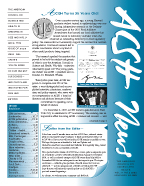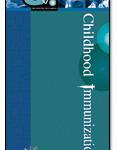The Advisory Committee on Immunization Practices (ACIP) created queue guidelines for those receiving the COVID-19 vaccines. While vaccination of healthcare workers and residents of long-term care facilities is already underway, there's much being written about position jockeying for those in the groups that follow. Let's take a deeper dive into these deliberations.
Search results
The source of the SARS-CoV-2 virus, which causes COVID-19, remains elusive. With "low confidence," some federal agencies favor the theory that it originated in and leaked from a Chinese laboratory performing "gain of function" research, while most scientists appear to be more persuaded that it came from a zoonotic spillover in a wildlife market.
While headlines scream about a link between exposure in the womb to common chemicals and lowered IQs in kids later on, the study these alarms are based upon is just more of the same old junk and data manipulation.
GHB, one of the "date-rape drugs," is being increasingly abused after two decades of low usage. Here's a lesson on the chemistry, biochemistry, and nomenclature of the drug. Admittedly, this sounds deadly boring. But there's more. Juvenile puke humor! Enjoy.
At times it seems as though even scientific journals can morph into fiction. An article appearing in the April 24th issue of the medical journal The Lancet, entitled "Uganda considers DDT to protect homes from malaria," is so incredible to anyone interested in public health as to have been written by Asimov or Crichton. Using the impending "celebration" of "Africa Malaria Day" (April 25th) as a rationale, the story describes the current status of malaria-control measures in Uganda, an impoverished land in eastern Africa best known to Americans for AIDS and Idi Amin.
This piece first appeared on the site Daily Caller.
While there may be a few valid illness claims buried among the 10,000 or so cases in the big 9/11 lawsuit now approaching trial, the overwhelming majority clearly relies on junk science. Sadly, there s a whole industry set up to supply that junk -- funded by lawyers eager to fuel such lawsuits, staffed by researchers eager to push bizarre theories, and promoted by ignorant reporters and politicians.
The New York Times recently swallowed whole a study which concluded that those who eat meat die 23% more quickly than those who don't. But the meat study sounded fishy. And it was. ACSH advisor and expert biostatistician Dr. Stan Young turns the meat study into hamburger.
The horror stories about pain and suffering arising from the CDC's new "voluntary guidelines" to physicians regarding opioid prescription policies keep rolling in. But it would difficult to find anything worse than what happened to former Seattle resident, Denny Peck. And it could just as easily happen to any of us.
All arguments are fair game as for whether Dr. Ben Carson is the right (or wrong) person to be Secretary of Housing and Urban Development. But don't tell us a brain surgeon only possesses the skills to be a brain surgeon.
Rare diseases are becoming the focus of more and more biomedical research. And the cost of developing medicines to treat them takes center stage in the discussion. A new article in JAMA concludes that clinical trials for rare diseases should cost less than those that require a larger number of patients. But it's not that simple. Pfizer's Dr. Robert Popvian explains.
Buying from your nearby farmer's market offers a number of important benefits. Environmental sustainability and local economic growth are not among them, according to a new review of the evidence.
Are there roles for others – those creatively or empathetically inclined to contribute to the field of medicine – that don't involve participating in the arduous, traditional medical school track? The answer: An emphatic yes!
Tragedies are great teachers, but unfortunately too many people draw the wrong lessons from them. Not too long ago, major tragedies were interpreted as some form of divine retribution for our sins. Now, geology (plate tectonics and volcanology), meteorology, other sciences offer hope for preventative and ameliorative actions.
Science rests on data, of that there can be no doubt. But peer through the hot haze of hype surrounding the use of big data in biology, and you will see plenty of cold facts that suggest we need fresh thinking if we are to turn the swelling ocean of “omes” – genomes, proteomes and transcriptomes – into new drugs and treatments.
Modern life has buffered us from so many of the constant dangers of pre-modern life that few of us fear them. Unfortunately, the removal of the constant threat of disease and starvation seems to cause us to fill in the vacuum with new fears. Instead of fear-mongering, though, the happy story of the last half-century should be told in terms of the cancer epidemics or other dark, unseen forces that didn't strike us.
A male physician disparages female doctors. Things don't go well for him. However, we now can have an honest discussion about the issue.
DISPATCH 6/20/08: Natural, Biotech, Asthmatic, Clustered, Immune
This past month, Stanford Medicine posted the following press release headline: “A Stanford Medicine-led trial of identical twins comparing vegan and omnivore diets found that a vegan diet improves overall cardiovascular health.”
It's controversial, but recent advances in surgical techniques lead a researcher to believe a head transplant will allow a willing patient who is paralyzed to move -- and even walk -- following the procedure.
The American Academy of Pediatrics warns that pesticides are endocrine-disrupting chemicals that harm children. Absurdly, AAP also endorses the use of puberty blockers and cross-sex hormones — treatments designed to disrupt a child’s endocrine system. It’s the latest example of a major science institution promoting harmful, hypocritical nonsense.
The Conversation returns with another awful story about the dangers of "ultra-processed" food. Here's a look at the science they ignored—again.
What happens when a family leads a "plastic-free" life for two months? You may be surprised.
Pagination
ACSH relies on donors like you. If you enjoy our work, please contribute.
Make your tax-deductible gift today!




